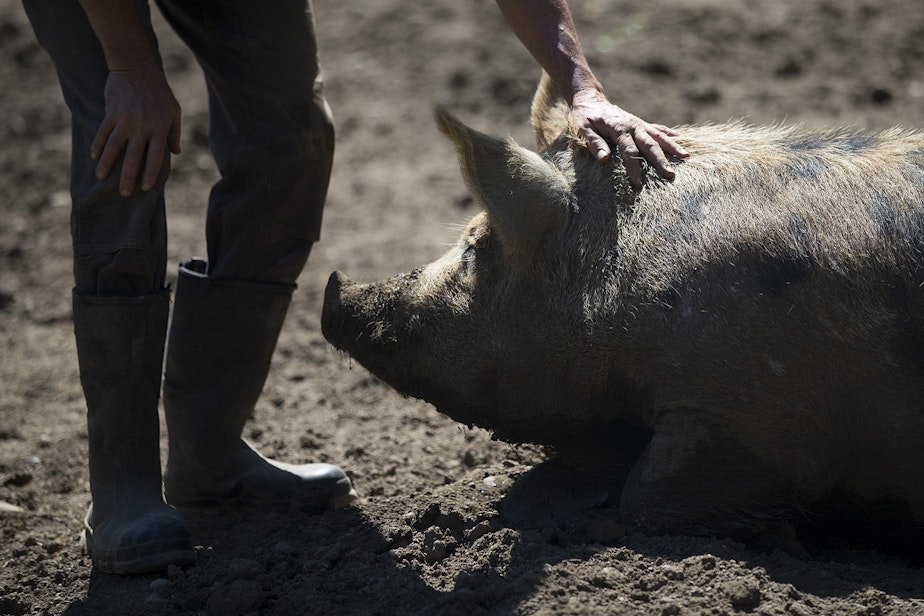We have the meats, but not the ethics. The 'raw deal' within our meat industry

In early 2020, the world shut down.
Those of us who could, stayed inside. We learned to bake. We got really into animal crossing.
But the workers who process our food couldn’t afford that same time off.
In her new book, "Raw Deal: Hidden Corruption, Corporate Greed, and the Fight for the Future of Meat," Chloe Sorvino describes how the pandemic helped expose the cracks in our meat and dairy industries.
We’ve seen those cracks here in Washington, too. If you've been to the grocery stores in recent weeks, you've likely noticed the rising prices, and decreasing availability, of eggs.
The avian flu, rising corn prices and supply chain issues have been blamed for the egg shortage we’re seeing in many parts of the world.
Sorvino says eggs give us a glimpse into the larger problems facing our food system.
"Eggs are super pricey right now, because of a confluence of problems that have faced the egg industry, but also the meat industry and pretty much every other aspect of how we get our food," she explains.
Sponsored
A small group of players make up the majority of the country's egg supply. It's the same with our meat — chicken, beef, pork. Sorvino says a handful of billionaires and private equity investors are responsible for most of the meat we eat. And most Americans have no idea.
The industry has consolidated over the years, Sorvino says, because of a constant push to increase profits. That means a need to control more and more of the supply chain, and to beat out smaller competitors.
"What we have now is just a really unbalanced system where the power dynamics have favored a few hands," Sorvino says.
The industry isn't just a monopoly. It's also a "monopsony," a market where there is only one buyer.
"It's really just the other side of the coin," Sorvino says. "When there's only a few retail outlets for a certain product."
Sponsored
Meat processors have a monopsony on producers. And grocery outlets, like Walmart, have a monopsony on processors. And without solving one problem, you're unlikely to solve the other.
"Because otherwise Walmart's gonna keep dictating that they need to work with bigger suppliers," Sovino explains.
Sorvino says that without intervention, the U.S. is cratering towards a food insecure future, one with nutrient-deficient soil, and water polluted by the meatpacking industry.
"The pollution to waterways, to airways, that has been shunted to taxpayers," she says. "The soil erosion, the devastation to soil that's going to be coming for years and will be irreversible. That's something we're going to be dealing with forever. And yet Tyson still made $4 billion of profit last year."
Sorvino does have some hope for the future. She says that the bubble has burst on meat substitutes such as the "Beyond" or "Impossible" brands. But mycelium, also known as fungi, are a real possibility.
Sponsored
"They use really low water, they're then also able to then be sliced or manipulated far less than the average alternative," Sorvino says. They also don't contain the additives or fillers that other meat substitutes do.
But they're not a perfect solution — it takes a lot of energy to grow fungi.
Sorvino says ones of the things she most wants people to take away from the book is that, while there are some things individuals can do, this is about changing the system.
"At the end of the day, it's up to the markets and the regulators to make sure that what we have is safe, accessible, healthy and good for us," she says.





